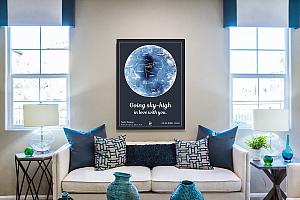Deloitte report: Most Romanian Millennials and Gen Zs prefer flexible work arrangements

Six out of ten (60%) Romanian Millennials and earliest members of Gen Z prefer a working arrangement that allows them to work from various locations, including from home, during flexible hours, according to the latest edition of Deloitte Central Europe (CE) First Steps into the Labour Market report. The study was conducted in 19 European countries, including Romania.
The same trend is seen in the other CE countries, where 50% of the respondents prefer a similar working model. By contrast, only 5% of the Romanian respondents and 10% of the CE respondents prefer the traditional model of working in an office for fixed hours.
According to the same report, despite the growing popularity of flexible working, the Romanian Millennials and Gen Zs (44%), similar to those in the CE region (51%), would rather work only once or twice a week remotely. Respondents from both Romania and CE face multiple challenges related to remote work, such as loneliness, lack of human interaction and interruptions due to family or home duties.
“The study documents an expectation for flexible work arrangements among the Millennials and Gen Zs, both locally and regionally, yet the preference for work from home is more limited than shown in other researches. This may be related not only to the perceived challenges of remote work but also to university graduates valuing career development opportunities more than the possibility to work from home and the realization that the office remains an environment that accelerates onboarding and professional development in the early stages of one’s career,” said Alexandru Reff, Country Managing Partner, Deloitte Romania and Moldova.
When it comes to preferred employment options, more than half of the respondents in Romania (59%) would like to have a full-time contract with a single employer, and more than a quarter (29%) would like to be freelancers or consultants, working on a flexible or short-term basis.
Meanwhile, the same report found that both in Romania and in CE, students and recent university graduates show a desire to work in other countries. 22% of the Romanian respondents said they plan to move abroad to pursue their careers, and 66% are willing to move to another country for a job. This may be one of the reasons why large international companies are the most appealing type of employer, with 37% of respondents placing them as the first choice, an option also valid for the CE respondents.
The COVID-19 pandemic did not influence the willingness of 66% of the Romanian respondents to move abroad for a job, targeting countries such as Germany (16%), the United Kingdom (15%) and the United States (7%).
According to the Deloitte study, 61% of the Romanian respondents are confident that it will take them less than six months to find a desirable job, slightly below the confidence level at CE level (more than 70%).
When it comes to matters of diversity, an overwhelming majority of Romanian respondents (93%) would prefer to work in an organization with a diverse workforce in terms of age, gender, nationality, ethnicity, and so on. Additionally, 77% of the respondents had no preference when asked about the gender of their supervisor.
The 2021 Deloitte CE First Steps into the Labour Market report gathered the views of over 9,000 people aged 18 to 30 (Millennials and some of the earliest members of Generation Z), all students at leading universities from across 19 countries in Central Europe, including Romania.
irina.marica@romania-insider.com
(Photo source: Mooshny/Dreamstime.com)














